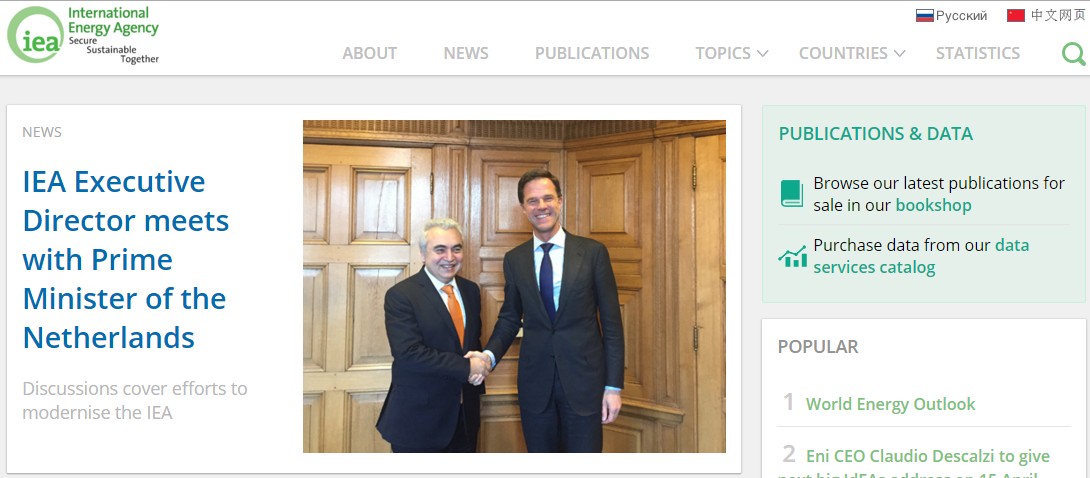The IEA is an autonomous organisation which works to ensure reliable, affordable and clean energy for its 29 member countries and beyond. The IEA has four main areas of focus: energy security, economic development, environmental awareness and engagement worldwide.
IEA International Energy Agency
- Home
- IEA International Energy Agency

Founded in 1974, the IEA was initially designed to help countries co-ordinate a collective response to major disruptions in the supply of oil such as the crisis of 1973/4.
While this remains a key aspect of its work, the IEA has evolved and expanded. It is at the heart of global dialogue on energy, providing authoritative statistics and analysis.
An autonomous organisation, the IEA examines the full spectrum of energy issues and advocates policies that will enhance the reliability, affordability and sustainability of energy in its 29 members countries and beyond.
The four main areas of IEA focus are:
- Energy Security: Promoting diversity, efficiency and flexibility within all energy sectors;
- Economic Development: Supporting free markets to foster economic growth and eliminate energy poverty;
- Environmental Awareness: Analysing policy options to offset the impact of energy production and use on the environment, especially for tackling climate change; and
- Engagement Worldwide: Working closely with partner countries, especially major economies, to find solutions to shared energy and environmental concerns.
Member countries
The IEA is made up of 29 member countries. Before becoming a member country of the IEA, a candidate country must demonstrate that it has:
- as a net oil importer, reserves of crude oil and/or product equivalent to 90 days of the prior year’s average net oil imports to which the government (even if it does not own those stocks directly) has immediate access should there be activation of the Co-ordinated Emergency Response Measures (CERM) – which provide a rapid and flexible system of response to actual or imminent oil supply disruptions.
- a demand-restraint programme for reducing national oil consumption by up to 10%.
- legislation and organisation necessary to operate, on a national basis, the CERM.
- legislation and measures in place to ensure that all oil companies operating under its jurisdiction report information as is necessary.


